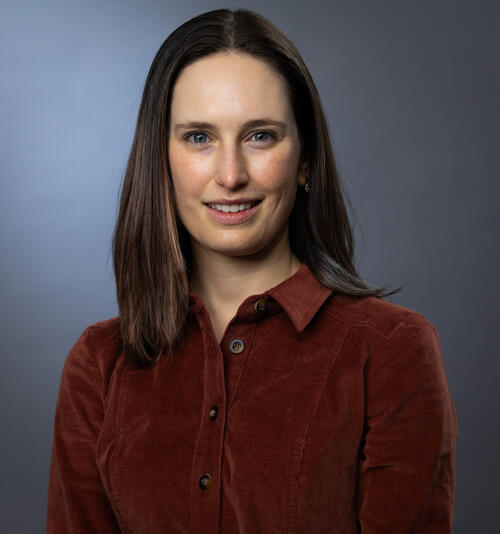Bethany Kotlar

2024 Harvard Horizons Scholar Beth Kotlar sat in a dormitory room in Georgia’s Lee Arrendale State Prison and listened to the stories of the women incarcerated there. The ones that broke her heart the most were those of the mothers who’d been pregnant during their sentence. They talked about being shackled when they were in labor and again just after they’d given birth, about being separated from their children, and about the lack of basic reproductive health care—even the sanitary/napkins they needed during their monthly menstrual cycles.
Over a decade later, life is better for hundreds of incarcerated women and their children thanks to Kotlar, a PhD student in population health sciences at the Harvard Kenneth C. Griffin Graduate School of Arts and Sciences, and Motherhood Beyond Bars (MBB), the nonprofit she founded over a decade ago. Kotlar’s Harvard Horizons project “When the Village Is Threatened: The Effects of Maternal Incarceration During Pregnancy and Early Childhood on Wellbeing,” provides badly needed research on a group that society mostly ignores and advances MBB’s effort to provide “comprehensive support for incarcerated mothers, their infants, and caregivers.”
Kotlar says there is a frustrating lack of the most basic information about incarcerated mothers and their children. “When I was at Lee Arrendale, there wasn’t even a reliable count of how many people were pregnant and in prison in the US,” she says. “We still don’t have great numbers.”
Perhaps not, but the numbers that are now available through MBB are staggering: a 525 percent increase in the number of incarcerated women—disproportionately people of color—over the past 4 decades; 80 percent of women held in jails are mothers to dependent children; in the state of Georgia alone, 200,000 children separated due to parental incarceration.
Kotlar’s PhD research digs into these figures, gathering data on “child development and family wellbeing in the context of mass incarceration.” Her work centers on children who were in utero during their mothers’ prison terms—and their caregivers. “Some moms are released before their kids are born, but most aren’t,” she explains. “So, the baby often goes home with a designated caregiver.” Kotlar’s study follows the children for the first three years of their lives.
Primary caregivers of children with mothers in prison often struggle to hold a job and pay for childcare. Georgia provides subsidies, but Kotlar found that for a complex series of reasons, many caregivers weren’t getting the benefit. Now, thanks in part to her work, they do.
“What MBB was able to do with that information was to make sure caregivers of kids with an incarcerated mother automatically qualified for the Early Head Start program,” she says. “From there, those moms could get childcare.”
In the next phase of her research, Kotlar plans to dive more deeply into the removal process and foster care system. “Only one child in our study entered foster care directly at birth,” she says. “But that child moved between families several times in their first year of life. We know that’s a critical period for establishing attachment to a caregiver and for social and emotional development, so that kind of movement data just set off alarm bells in my brain. The consequences are going to be bad for the child—and for the communities they live in.”

